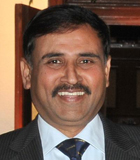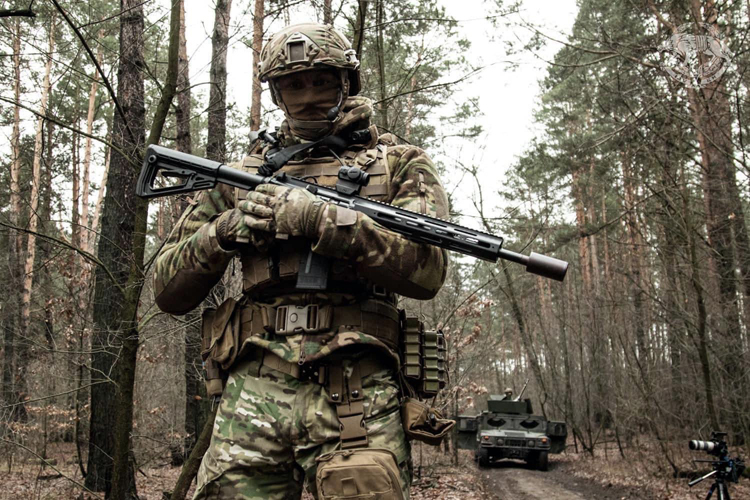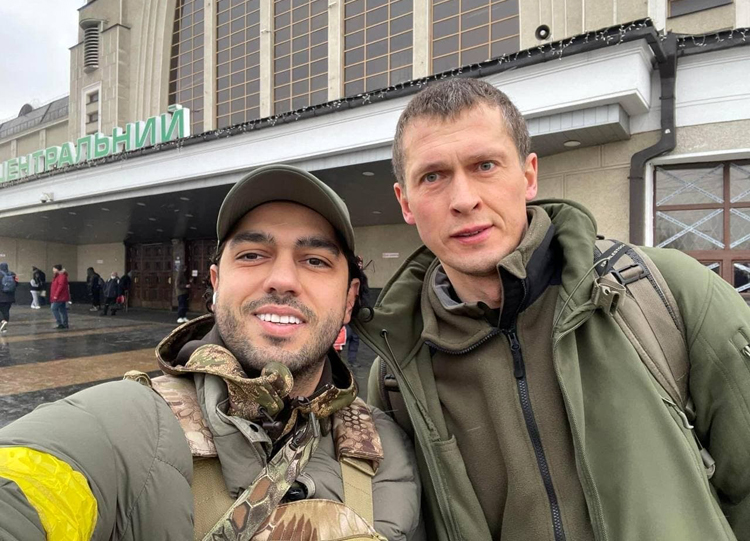INDIAN ARMED FORCES CHIEFS ON OUR RELENTLESS AND FOCUSED PUBLISHING EFFORTS

The insightful articles, inspiring narrations and analytical perspectives presented by the Editorial Team, establish an alluring connect with the reader. My compliments and best wishes to SP Guide Publications.

"Over the past 60 years, the growth of SP Guide Publications has mirrored the rising stature of Indian Navy. Its well-researched and informative magazines on Defence and Aerospace sector have served to shape an educated opinion of our military personnel, policy makers and the public alike. I wish SP's Publication team continued success, fair winds and following seas in all future endeavour!"

Since, its inception in 1964, SP Guide Publications has consistently demonstrated commitment to high-quality journalism in the aerospace and defence sectors, earning a well-deserved reputation as Asia's largest media house in this domain. I wish SP Guide Publications continued success in its pursuit of excellence.
- MoD initiates comprehensive review of Defence Acquisition Procedure 2020, pushes for defence reforms
- G7: The Swansong
- Kalinga Connect: South Asia to Polynesia
- Must Credit DRDO for Operation Sindoor, now what is next for defence R&D?
- The layered Air Defence systems that worked superbly, the key element of Operation Sindoor
- Operation Sindoor | Day 2 DGMOs Briefing
- Operation Sindoor: Resolute yet Restrained
Foreign Fighters in Ukraine: A Doomsday Scenario
Foreigners are not necessarily good for the very people they seek to defend. It has been amply proven that when foreign fighters deploy, violence against locals goes up.
 |
The Author is Former Chief of Staff (COS), Central Command, Indian Army. He is an expert on Siachen and Ladakh with experience in counter insurgency operations in J&K and North East and is also an expert on Information Warfare. |

How many volunteers will go to Ukraine is unknown, but the mass recruitment of foreign fighters is hardly new. The most recent mass wave involved jihadis, who went to fight in Afghanistan, Iraq and particularly Syria, among other countries. Indeed, even before the latest round, the Ukraine conflict, which has waxed and waned since 2014, attracted foreign fighters - some to help Russia and its promise of anti-LGBTQ, anti-left wing, muscular nationalism; others to help defend Ukraine from foreign aggression. These volunteers included an array of white supremacist and other right-wing extremists.
The military record of foreign fighters is mixed. In many cases, they are zealous but untrained and do not come well-armed. They are eager for combat and (in the case of jihadis) martyrdom, but overall add little to the combat power of their fellow fighters, especially in cases, like Afghanistan in the 1980s and Ukraine today, where there is plenty of manpower. Most end up as cannon fodder. In some instances, however, the fighters themselves come with skills. As one of the reports indicate that American and British special operations forces’ veterans are preparing to deploy to Ukraine — and this cohort can be far more useful. And in many other instances, foreign fighters become skilled through a brutal Darwinian process once they arrive to fight. The foreign fighters are often more useful in an insurgency, as has been the case with Kashmir, North East and other parts of the world and Ukraine may too become an insurgency. For guerrilla conflicts, the foreigners’ dedication is vital, and their more limited firepower is less of a disadvantage.
The military record of foreign fighters is mixed. In many cases, they are zealous but untrained and do not come well-armed. They are eager for combat and (in the case of jihadis) martyrdom, but overall add little to the combat power.
However, for outside powers, their nationals are now part of the war. Even if their home governments disavow the fighters, countries like Russia are likely to see this as part of a secret (or not-so-secret) way to support Moscow’s enemies. Indeed, Russia has good reason to be suspicious, as it has done the same thing with its “volunteers” in the past. In addition, some citizens may be captured, seek rescue, or otherwise create complications for their home countries.

Nor are the foreigners necessarily good for the very people they seek to defend. It has been amply proventhat when foreign fighters deploy, violence against civilians goes up. Far-right militias in Ukraine are already declaring that they plan to exploit the war. Often the foreigners are more zealous and, because they lack friends and family in the community, in contrast to host country nationals, they can commit atrocities without fears of reprisals against their loved ones.
Often the foreigners are more zealous and, because they lack friends and family in the community, in contrast to host country nationals, they can commit atrocities without fears of reprisals against their loved ones
Establishing firm command and control of any foreign fighters is necessary. Incase of Ukraine, it will be even much harder as the Russian attacks made centralised control even over its own forces more difficult. They were better able to capitalise on Afghans, Pakistanis, and Lebanese Hezbollah members who joined its side in that country’s civil war, making them an important part of the regime’s war effort by ensuring they served under Iranian and Syrian control. If foreign fighters go off on their own, they may fight bravely, but it may backfire in the long-term.
Terrorism is one of the biggest risks related to foreign fighters. The foreign fighters flow to Afghanistan to oppose the Soviets in the 1980’s seeded subsequent jihads in Muslim-majority countries such as Algeria and Somalia, and even India with Afghan veterans playing critical roles. Most of the fighters who did return to their home countries were not involved in terrorism, but those who did not, proved to be more deadly. In addition, the conflict zone may lead idealistic foreigners to become indoctrinated with more radical ideologies.They go to oppose one foe, but in the war zone they mix with other radicals and come away, more radical and more networked.
Terrorism is one of the biggest risks related to foreign fighters. The foreign fightersgo to oppose one foe, but in the war zone they mix with other radicals and come away, more radical and more networked.
Those going to Ukraine have little in common with jihadis ideologically, but the presence of right-wing extremists should give governments pause when they consider whether to encourage their nationals to go and fight. Having such extremists, who already pose a grave threat, become more lethal and networked is one danger. They may also infect others with their beliefs, bringing them home on return and, because of their combat experience, they may be particularly admired within their communities.
In general, private war is a bad idea even in cases like Ukraine, when there is a clear victim state and villain state. If governments believe Ukraine needs more support, they should provide it, not put the onus on individual citizens, especially when such fighters can make things worse for the country in question and pose long-term dangers. At the very least, it is vital for home governments to track those fighters who come and go from Ukraine. Ukraine too should approach this option of support with caution. The very supporter will be its own foe.





